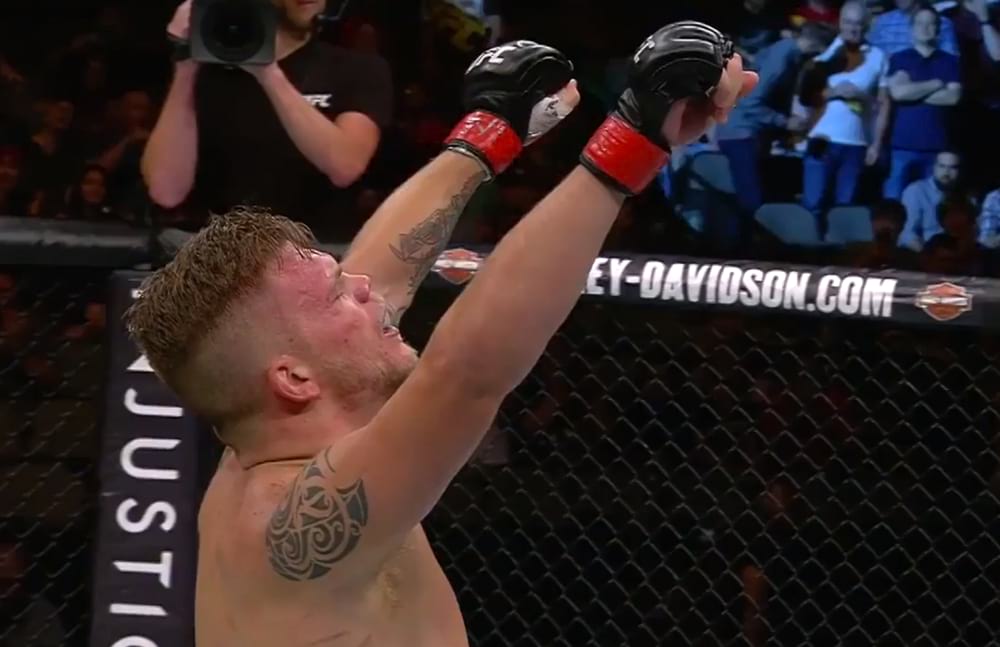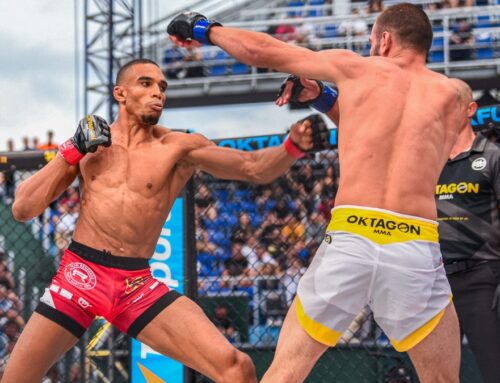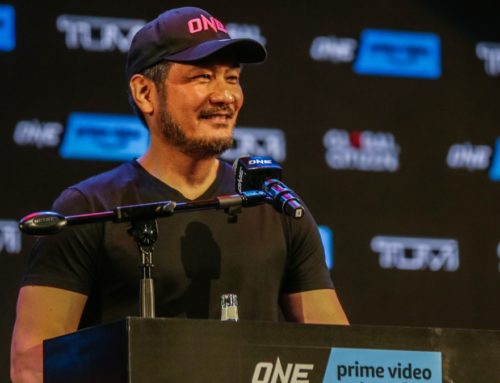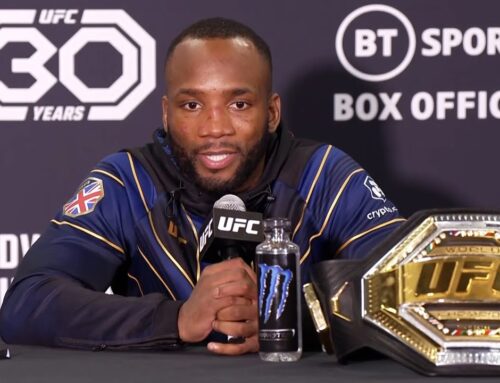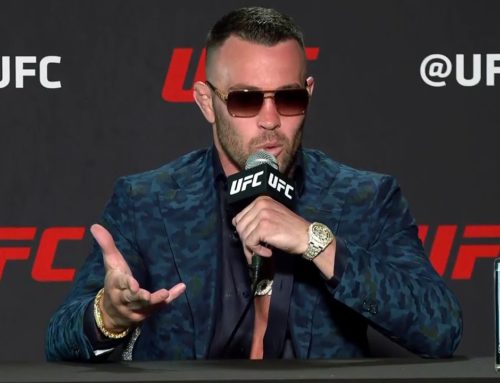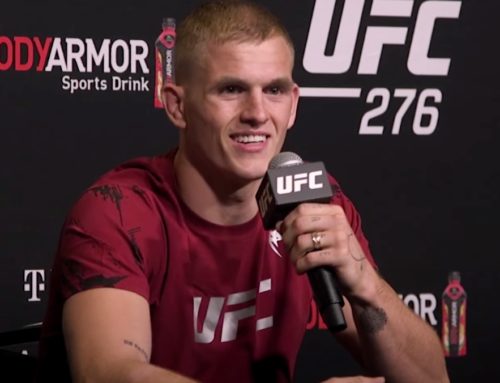Chase Sherman had two consecutive defeats on his fight record and one hundred dollars in his bank account the day he prepared to face Rashad Coulter in Dallas. The latter a consequence of the former, Sherman knew, if he lost once again inside the UFC’s Octagon, he may never be invited back, and this reality, for a 27-year-old with a child, was too much to bear.
So, on May 13, with everything on the line, Chase Sherman fought like a man with one hundred dollars to his name. He punched and kicked Rashad Coulter as if he owed him money, like he had stolen food from his child’s plate, and continued to punch and kick even when it hurt him to do so and when he felt on the verge of collapse.
Make or break, both in terms of the fight itself and a career as a whole, Sherman was a young heavyweight without options. He had to fight. He had to win.
“I was 0-2 and I was going into that fight with some things going on in my life back home that were really tough,” he tells Fighters Only. “My back was against the wall and I was in a bad place financially.
“I got called to be on the biggest card of the year and then I got moved up to the Fox Sports part of the card, right before Jason (Knight, gym mate) got to fight, and I was thinking it was my time. I thought, f**k it, if I’m meant to be here, I’m meant to be here. But, regardless, I’m going to go out and have fun and show the world what I can do. That’s just how I felt. I love being under pressure. I love having my back against the wall. That’s when I feel like I perform at my best.”
In reality, it was Coulter who found his back against the wall – or, more accurately, the Octagon fence – during the course of the round-and-a-half he shared with Sherman. Indeed, it was from this very position Sherman did most of the damage, stabbing punches to head and body with composure and intelligence, and eventually bringing the curtain down on Coulter’s night with a stunning right elbow at the 3:36 mark of round two.
“He was tough, man,” says Sherman. “He was an annoying little gnat you can’t kill or put away. I was trying to bombard him with everything I had. Right before I finished him, I was like, I’m going to take my time now and look for the openings instead of just trying to kill him. He was dead tired. I was tired, too. He was leaning up against the cage and I was parrying at his hands and I pulled that hand down and hit him with everything I had with that elbow. I thought, if he doesn’t go down after that, he’s just not human. Luckily, he fell down and the ref called it.”
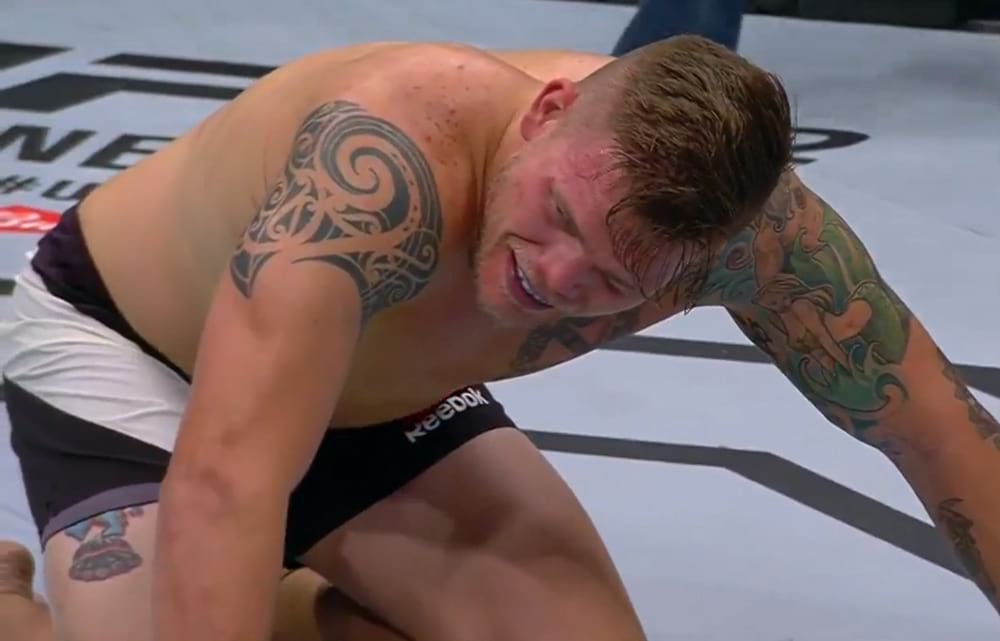
The win was good enough. Vital and overdue, it was something Sherman was in desperate need of, something that would prolong his stay with the UFC and lead to other fights and other paydays. But just as important as the win was the ‘Fight of the Night’ bonus cheques both Sherman and Coulter received for their sterling effort. It meant Sherman’s bank account, once home to a hundred bucks, soared exponentially in the following days.
“It makes a big difference,” he says, laughing. “Seventy thousand dollars in Mississippi takes you a long way. A lot of people don’t make that in two years. That’s huge. But I’m trying to be smart about it and reinvest in a couple of different avenues, so I can have some money coming in from different directions instead of it just sitting in the bank and me spending it. I’ve got a little boy as well, so I’ve put a bit of money away for him. I’ve also still got to try and pay these student loans off from college.”
Wins, eye-catching performances and knockouts tend to create momentum and Sherman, the heavyweight fall guy who couldn’t catch a break, knows this now. For not long after folding Coulter with an elbow at UFC 211, Sherman received the late-notice call to fight Damian Grabowski on July 22. An opportunity too good to turn down, the self-styled ‘Vanilla Gorilla’ has the chance to win another fight and make some more money. Which is why, when the call came, he didn’t need to be asked twice.
“I told myself I was going to take the summer off and enjoy that bonus money a little bit, but they (the UFC) called me right away and said they wanted me to fight Grabowski,” he explains. “I was like, ‘Okay, let me have a look at it.’ I looked at him and thought, I should be able to beat the hell out of this guy.
“It’s another chance for me to make some money and that will allow me to then spend some money. Let’s get some more wins and get the ball rolling on this thing. Now I’ve had a little taste of what it’s like to win, I want the whole thing. I’m not worried about those first two fights. It’s just about building momentum and getting the win-streak going. I plan to put at least three or four together and reevaluate the situation to see where we’re at.
“If I fight two more times this year that will mean I would have fought five times in a year. That would be good.”
Grabowski is another heavyweight in a pickle. He, like Sherman, is sullied by back-to-back losses. Unlike Sherman, though, Grabowski has been finished twice in a row, both times inside the first round and once within just 14 seconds. As far as confidence, then, Sherman can assume Grabowski will be in short supply.
Then again, Sherman is just as aware of the possibility Grabowski, with his back against the wall and his career having hit the skids, could react first stoically and then heroically. He could pull something out of the bag when he needs it most. He could, in a sense, do a Chase Sherman.
“It can either go one of two ways,” says Sherman. “He can either come out with a fire under his ass or he can come out and be like, ‘Hey, I’m 37 years old, I had a good run at it and I’ve realised I’m probably never going to be champ.’ He could come out a little flat and sluggish. Regardless, he’s going to get the best version of me there is. I hope I get the best him.
“I know I’ll put on a good show. I’ve never in my life had a boring fight. I don’t care how the finish gets there. So long as I win, that’s all that matters to me.”
There are wins and then there are wins. Chase Sherman might never score a more important win than the one he got in May, but he’ll do everything in his power to try. Frankly, in a tough sport and a tougher world, his bank balance and livelihood depends on it.

